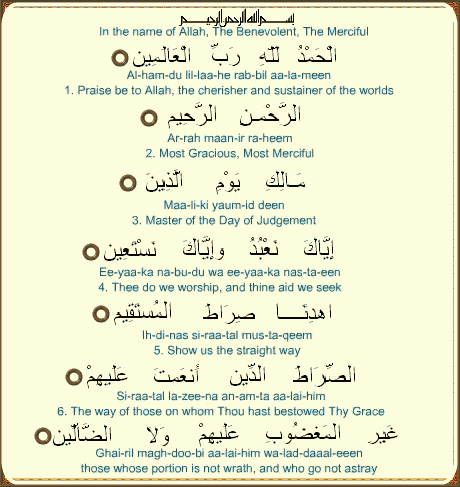

Wa’laa yuhee’toona bee’shai-im’min il’mihee illa be-maa shaa Ya’lamu maa baina ai’deehim wa’maa khal-fahum Man zal’lazee yashfa’oo in’dahoo illa be iznih

Laa taa’khuzuhoo sinatu’oo walaa na’woom Surah Al Baqarah 2: 255 | Al-Hakim 1/562 | An Nasai | at-Tabaraniīefore sleeping | Ruquiya | Sick/Evil eye | Guarding Empty homeĢ55: Allahu laa ilaaha illaa’hu wal haiyul qai-yoom

Also, if these verses were to be recited over a senile person, they would wake him up”. “The Shaytan will not come near him or to his family, nor will he be touched by anything that he dislikes. In another narration Ibn Mas`ud r.a said: “Whoever recites the 10 verses from Surat Al-Baqarah in a night, and then Shaytan will not enter his house that night”. Ģ:5 Those are upon guidance from their Lord, and it is those who are the successful.Īsh-Sha`bi r.a said that Abdullah Ibn Mas`ud r.a said: In the name of Allah, the Entirely Merciful, the Especially MercifulĢ:1 Alif-Lam-Mim.Ģ:2 This is the Book about which there is no doubt, a guidance for those conscious of Allah.Ģ:3 Who believe in the unseen, establish prayer, and spend out of what We have provided for them.Ģ:4 And who believe in what has been revealed to you,, and what was revealed before you, and of the Hereafter they are certain. When he says: “Guide us to the straight path, the path of those whom you have favoured, not those who went astray”Īllah says: “This is for my servant, and my servant will have what he has asked for”.īefore sleeping | Ruquiya | Sick/Evil eye | Guarding empty homeĢ:2 Zaalikal kitaabu-laa raiba : feeh : hudal-lil muttaqeen.Ģ:3 Allazeena yu’minoona bilghaibi wa yu’qee-moonas salata wa mim’maa razaqna’hum yun’fiqoon.Ģ:4 Wal’lazena yu’minoona bimaa un’zila ilaika wa-maa unzila min qablika wa bil aa’khirati hum yu’qinoon.Ģ:5 Ulaa’ika aa’laa hudam-mir rabbihim wa ulaa’ika humul muflihoon. When he says: “You alone we worship, you alone we ask for help”Īllah says: “This is between me and my servant, and my servant will have what he has asked for”. When he says: “The Master of the Day of Judgment”Īllah says: “My servant has glorified me and my servant has submitted to me”. When he says: “The Gracious, the Merciful” When the servant says: “All praise is due to Allah the Lord of the worlds” To make us contemplate these boundless gifts of God, the formula: "In the name of God Most Gracious, Most Merciful": is placed before every Sura of the Qur-an (except the ninth), and repeated at the beginning of every act by the Muslim who dedicates his life to God, and whose hope is in His Mercy.All Shifa | Before sleeping | Ruquiya | Sick/Evil eyeġ:5 Iyyaaka na’budu wa lyyaaka nasta’een.ġ:7 Siraatal-lazeena an’amta ‘alaihim ghayril maghdoo bi’alai’him wa lad-daalleen.ġ:1 In the name of Allah, the Entirely Merciful, the Especially Merciful.ġ:2 praise is to Allah, Lord of the worlds.ġ:3 The Entirely Merciful, the Especially Merciful.ġ:5 It is You we worship and You we ask for help.ġ:7 The path of those upon whom You have bestowed favour, not of those who have evoked anger or of those who are astray.Ību Huraira r.a reported, The Prophet ﷺ said:Īllah said: “I have divided prayer between myself and my servant into two halves, and my servant shall have what he has asked for”. For this reason the attribute Rahman (Most Gracious) is not applied to any but God, but the attribute Rahim (Merciful), is a general term, and may also be applied to Men. But there is a Mercy that goes before even the need arises, the Grace which is ever watchful, and flows from God Most Gracious to all His creatures, protecting the, preserving them, guiding them, and leading them to clearer light and higher life. Mercy may imply pity, long-suffering, patience, and forgiveness, all of which the sinner needs and God Most Merciful bestows in abundant measure. The latter implies a comparison with other beings, or with other times or places, while there is no being like unto God, and He is independent of Time and Place.

The Arabic intensive is more suited to express God's attributes than the superlative degree in English. Note Number : 19The Arabic words "Rahman" and "Rahim" translated "Most Gracious" and "Most Merciful" are both intensive forms referring to different aspects of God's attribute of Mercy.


 0 kommentar(er)
0 kommentar(er)
